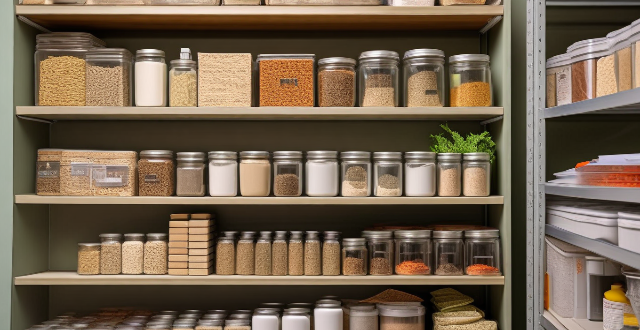Homemade natural cleaners' shelf life depends on factors like ingredients, storage, and concentration. To extend their lifespan, use high-quality ingredients, store properly, label with dates, avoid cross-contamination, and consider adding natural preservatives.

How Long Do Homemade Natural Cleaners Typically Last Before They Lose Their Potency?
Homemade natural cleaners are becoming increasingly popular due to their eco-friendly and cost-effective properties. However, one common question that arises is how long these cleaners typically last before they lose their effectiveness. The answer can vary depending on several factors, including the type of ingredients used, storage conditions, and the concentration of the solution. In this article, we will explore these factors in detail and provide some tips for maximizing the shelf life of your homemade natural cleaners.
Factors Affecting Shelf Life
Type of Ingredients Used
The type of ingredients used in your homemade natural cleaners can significantly impact their shelf life. Some natural ingredients, such as vinegar and lemon juice, have a longer shelf life than others, such as essential oils or fresh herbs. It's important to research the individual shelf lives of each ingredient you plan to use and choose those with a longer shelf life for maximum effectiveness.
Storage Conditions
Proper storage conditions are crucial for maintaining the potency of your homemade natural cleaners. Exposure to light, heat, and air can all contribute to a decrease in effectiveness over time. To ensure optimal shelf life, store your cleaners in a cool, dark place away from direct sunlight and extreme temperatures. Additionally, consider using airtight containers to minimize exposure to air.
Concentration of the Solution
The concentration of your homemade natural cleaners can also affect their shelf life. A more concentrated solution may last longer than a diluted one, but it's important not to exceed recommended concentrations for safety reasons. Be sure to follow any recipes or guidelines carefully to ensure both effectiveness and safety.
Tips for Maximizing Shelf Life
Now that we've discussed the factors affecting shelf life, let's explore some tips for maximizing the longevity of your homemade natural cleaners:
1. Use High-Quality Ingredients: Start with high-quality ingredients to ensure that your cleaners are as potent as possible initially. This can help extend their overall shelf life.
2. Store Properly: As mentioned earlier, proper storage is key to maintaining the effectiveness of your cleaners. Make sure to store them in a cool, dark place in airtight containers.
3. Label Your Cleaners: Label your cleaners with the date they were made so you know when they might start losing potency. This can help you rotate your stock and use up older cleaners before they expire.
4. Avoid Cross-Contamination: If you're using multiple cleaners with different ingredients, avoid cross-contamination by using separate spray bottles or containers for each solution. This can help prevent any adverse reactions between ingredients that could reduce shelf life.
5. Experiment with Preservatives: While not necessary for all homemade natural cleaners, adding a natural preservative like citric acid or vitamin E oil can help extend the shelf life of certain solutions. Be sure to research which preservatives work best with your chosen ingredients and follow any recommended usage guidelines.
In conclusion, the shelf life of homemade natural cleaners can vary depending on several factors, including the type of ingredients used, storage conditions, and concentration of the solution. By following our tips for maximizing shelf life, you can ensure that your homemade natural cleaners remain potent and effective for as long as possible.